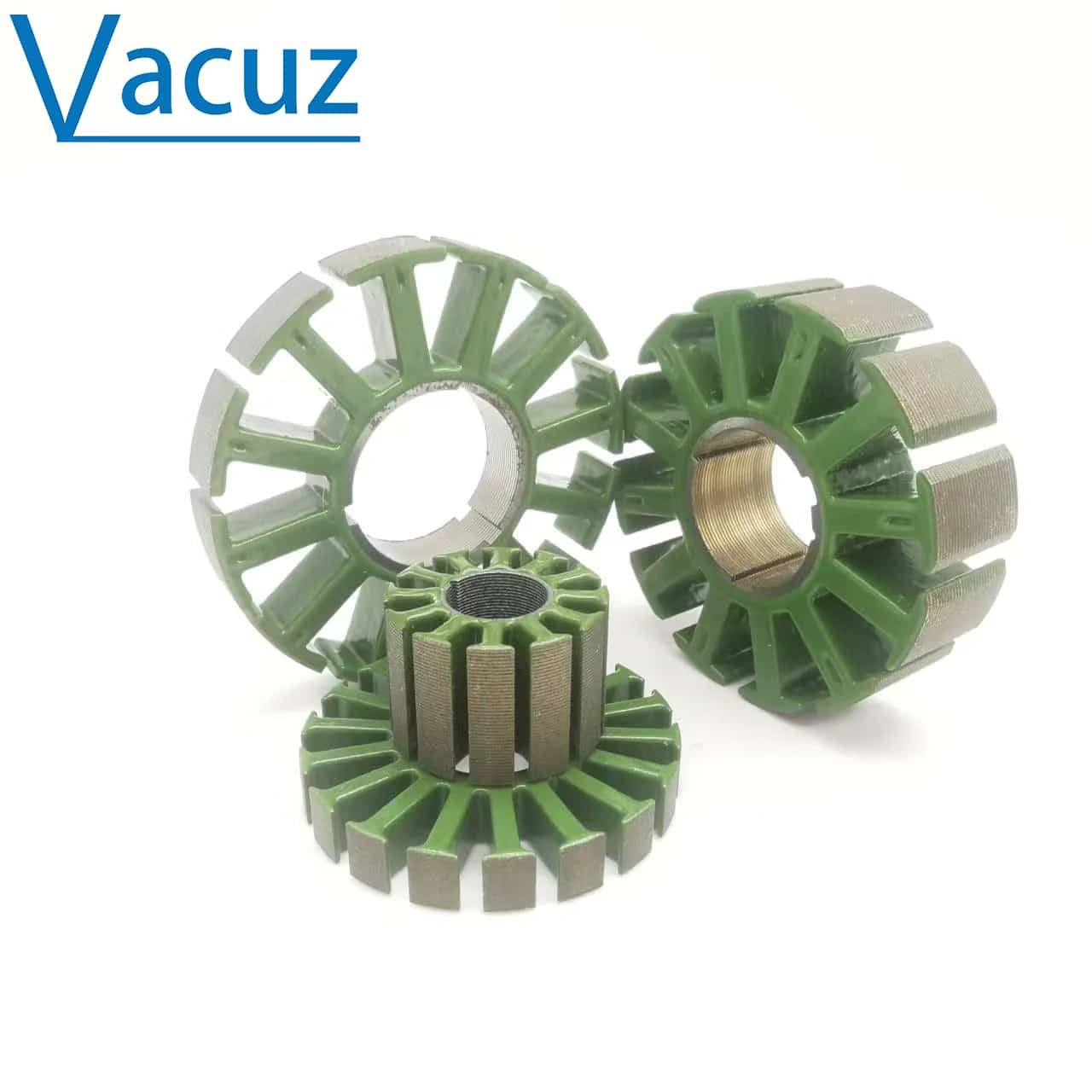The outer stator of a brushless motor, also known as the outer rotor, has different winding methods, and the rotor winding machines also vary. So what are the production requirements for brushless outer rotor winding machines? How can we save time and effort? Vacuz will briefly explain!

I. Core Production Requirements:
1. Precision and Stability
Mold Precision: Strictly follow the drawings, with tolerances controlled to the micron level, and surface polished to prevent scratching of the enameled wire.
Winding Consistency: High-precision servo motors + PLC closed-loop control, with real-time feedback from tension sensors, ensure the proper tension of the wire.
Dynamic Speed Control: A frequency converter + encoder enables adaptive speed control based on wire diameter (e.g., a 0.2mm increase in wire diameter results in a 15% speed reduction).
2. Equipment Structure and Durability
Frame Design: A composite structure of sheet metal and aluminum profiles provides strong shock absorption and low vibration even at high speeds.
High-Quality Accessories: Precision guide rails, lead screws, tensioners, etc., increase rigidity by 30% and reduce vibration.
Optimized Low Noise: Improved mechanical structure reduces operating noise.
3. Flexibility and Versatility
Modular Fixtures: Quickly change to adapt to different molds, meeting the needs of multiple models.
Multi-Station Layout: Designs ranging from two to six stations reduce idle time (e.g., six-station batch production).
Combined Winding Machine: “Flying Fork + Needle” supports both internal and external winding, with a changeover time of just 10 minutes.
4. Automation and Intelligence
Fully Automatic Operation: Integrated loading and unloading, winding, and arranging, with external winding speeds reaching 1200 RPM.
Intelligent Control: Industrial cameras and AI algorithms automatically correct winding paths, and graphical programming reduces operational barriers.
IoT Monitoring: Vibration sensors warn of wear on key components, and cloud-based analysis indicates maintenance needs.
II. Time-Saving and Labor-Saving Solutions
1. Process Optimization
Segmented Winding: When stacking thickness exceeds 150mm, winding is performed in upper and lower sections to reduce sway.
Dynamic Compensation: Input the actual stacking thickness to automatically adjust the wire spacing (e.g., for every 50mm increase, the spacing increases by 0.2mm).
Low-Speed Start: Initially, the wire ends are fixed at 50-80 RPM, reducing the risk of wire breakage.
2. Equipment Configuration
High-Speed Flying Fork External Winding Machine: Lightweight flying fork head + pneumatic balancing, with speed increased to 1200 RPM.
Automatic Lubrication System: Metering pump + nozzle for timed lubrication to eliminate manual errors.
3. Intelligent Management
Maintenance System: Automatically generates maintenance plans and digitally records fault history.
Early Warning Function: Provides proactive maintenance reminders, enabling preventive actions to reduce downtime.
4. Personnel Training
Simplified Operation: An intuitive human-machine interface reduces the complexity of parameter settings.
Real-time Monitoring: Continuously monitor the winding process and quickly address any issues.

What are the production requirements for brushless outer rotor winding machines? How can you save time and effort? Vacuz has provided a brief explanation above. We hope this information is helpful!
電子メール:sales@vacuz.com [fusion_form form_post_id="431″ margin_top="" margin_right="" margin_bottom="" margin_left="" hide_on_mobile="small-visibility,medium-visibility,large-visibility" class="" id=""][/fusion_form].

